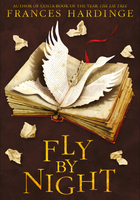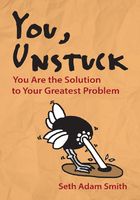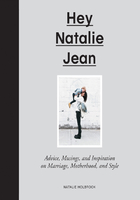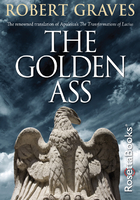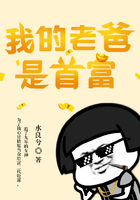Faith's mind was watchful, even while sleeping. The first early morning movements in the house nudged her from her dreams into a half-wakened state. She could hear a distant door banging, the slosh of water, the tumble of logs from a woodpile.
Her outdoor coat wrapped around her nightshirt, Faith slipped downstairs, just in time to see Jeanne walking up to the library with a tea tray.
"It is quite all right, Jeanne," said Faith, trying to imitate her mother's air of confidence. "I will take in the tray."
Jeanne looked at Faith in surprise, then glanced at the door. Faith could see the older girl's curiosity unsheathing itself like a cat's claw.
"Yes, miss."
After Jeanne had departed, Faith took up the tray and slipped into the library, which was almost pitch dark. The same cold smell hung in the room, but now with an added sour staleness, like rotten oranges. Faith set down the tray and hurried over to open the window and shutters, so as to let in the light and clear the air. If the smell was the scent of an opiate, she did not want anybody else to notice it.
As daylight seeped into the room, Faith could see that the Reverend was still sitting in his chair, wearing the same clothes as the night before. His body lolled forward on to his desk, and Faith felt a frisson of panic, until she realized that she could hear him breathing.
The desk was heaped with open books and scrawled papers. The Reverend's writing box and travel chest were open, their carefully guarded contents scattered over chairs and even the floor. On the edge of the bookcase a candle had been left to burn down, so that there was a blackened scar in the shelf above and waxen stalactites trailing below.
It felt blasphemous seeing him asleep. Even in rest his face had the sedate severity of churchyard marbles or ancient statuary. He was unyielding stone, and judgments carved deep. He was a place where you needed to tread quietly and whisper.
"Father?"
The Reverend stirred, then slowly lifted his head and sat up.
His eyes were their usual gray, but with a filmy distance. The mists lifted with uncanny speed, however, and his gaze became skewer-sharp.
"What are you doing in this room?"
Faith froze. A moment before, she had felt that she was protecting him. Now that very thought seemed childish and presumptuous.
"Jeanne brought your morning tea. I thought … I thought you would not want her to come in. You seemed … last night you seemed ill …"
"I gave instructions that nobody was to come in here!" Her father blinked hard and stared through Faith, frowning as through she were a very poor telescope. "I … am not ill. You were mistaken. Did you tell anybody that I was ill?"
"No." Faith shook her head emphatically.
"Has anyone else been in here?"
"I do not think so …" Faith trailed off. Her father's eye had caught on something, and as she followed his gaze she saw a new bundle of kindling by the fireplace and a freshly filled coal scuttle. Faith had forgotten that most of the fires were set at five in the morning. Clearly one of the servants had come in to set the fire, found the sleeping Reverend, and departed again, leaving the fire-making supplies ready to be used when needed.
The Reverend glanced around at his strewn papers, now with an air of alarm and urgency.
"Were these papers scattered thus when you first came in?"
Faith nodded, and the Reverend began scooping them up and heaping them back into his writing box. A few pages showed rough ink sketches, and he paused to stare at them.
"What do these mean?" he murmured under his breath. "I deserve an answer—I have given everything for an answer! How can I make sense of this nonsense?"
Faith hurried over to help. The sketches were strange and hard to distinguish. A rat-shaped creature rested its forepaws on a broken oval. A dragon-like beast reared a scribbled head. A half-human face with a heavily sloping brow glowered with hostile stupefaction. She saw little more before the drawings were snatched out of her hands.
"Do not touch those!" the Reverend told her abruptly.
"I was only trying to help." Faith's desperation won out over her prudence. "I just want to help! Father, please tell me what is wrong! I promise not to tell anybody!"
Her father looked at her in surprise for a few seconds, and then his gaze dulled with impatience.
"There is nothing wrong, Faith. Bring me my tea, then leave me to my work."
The rejection stung, as it always stung. Somehow there was never a callus to protect her.
Faith ate a nursery breakfast of weak, cold tea and eggs boiled soft to the point of liquescence. She was preoccupied and groggy from broken sleep, and noticed only at the end of the meal that Howard was furtively using his fork and knife in the wrong hands again.
When Faith came downstairs, she ventured to the dining room and peered through the door. There was her father, drinking tea with her mother and uncle over the remains of their breakfast. He showed every semblance of his usual composure. His hands were steady as he turned the pages of his newspaper.
"There you are, Faith!" Myrtle caught sight of her and beckoned. "You must come into town with me today. We must buy you some new kid gloves, since you have lost yours—though I do not know how you could be so careless!"
Faith flushed and mumbled an apology.
"Be ready to go out as soon as you can." Myrtle gave her husband a slightly warier glance. "My dear … if you see Dr. Jacklers at the excavation today, will you settle matters with him?"
"Dr. Jacklers?" The Reverend surveyed his wife as if she were an incomprehensible squiggle under his microscope. "What matters?"
Faith's heart sank and she suddenly wished with miserable intensity that she had admitted everything to her father that morning. It was too late though, and the crisis had arrived. Her terrible impudence in speaking for her father was about to be discovered.
"The fee for treating that young boy caught in the rabbit trap last night …" Myrtle faltered.
"What?" The Reverend rose to his feet, casting a thunderous look out toward the garden.
"You … said that we should send for the doctor." Myrtle's brow wrinkled uncertainly, and her eyes slid toward her daughter.
Faith swallowed hard and met her father's gaze. His expression was cloudy, changeable and hard to read. There was ill weather there, and the makings of a storm. She saw his thoughts surge silently toward a conclusion, but could not tell what it was.
Then he slowly sat down again and smoothed his disheveled paper.
"When I sent for the doctor," he continued coldly, "I assumed the boy's family would bear the brunt of the cost. I scarcely see why trespassers should be allowed to pick our pocket like this, but … since I shall be seeing Dr. Jacklers, I will settle his fee. I shall of course speak to the magistrate as well, and see that the law is brought to bear in this matter."
Faith listened in shocked relief. Somehow, miraculously, the storm seemed to have passed harmlessly. Her father had backed up her story. Now Faith felt that they shared more than a secret—they were joined in a conspiracy. She could not quite understand why this had happened, or how.
"Which trap was it?" the Reverend asked, apparently as an afterthought.
"It was among the trees, just past the Folly," said Uncle Miles. "Erasmus, I do hope you will move that trap—it is right on the edge of a steep slope that rolls down to the bottom of the dell. Somebody who tripped that trap might fall badly and break their neck. And … it is not quite legal, you know."
The Reverend nodded solemnly to himself, but Faith was not sure how much of Uncle Miles's advice had penetrated. Indeed, she wondered if he had heard anything after the word "Folly."
One of the gentlemen at the Lambents' gathering had gallantly offered to put his driver and carriage at Myrtle's disposal for the morning, so that she could "see something of the town." When the vehicle arrived and proved to be a dog-cart, Myrtle's face showed a flicker of surprise and disdain before her smile reasserted itself. Myrtle rode beside the driver, and Faith was left perched in the breezy, backward-facing seat at the rear, watching the road unscroll below her feet.
As the dog-cart carried Faith and her mother along the low coast road to town, Faith was still trying to understand her father's behavior and her own reprieve. The wind was fierce, dragging a patchwork sky of blues and grays, and forcing Faith to cling to her bonnet. Tiny spits and spots of spray tickled Faith's cheeks and gleamed on her eyelashes.
The little harbor town was a more pleasant sight by damp sunlight than it had been on the day of the Sunderlys' arrival. The houses were painted in whites, ochre yellows, and vivid blues. The sunlight gleamed on the inn signs and the hanging bell in the tiny, lopsided town square. Everything smelled of the sea.
Myrtle asked the driver to wait in the square and then daintily dismounted, followed by Faith. Today Myrtle's cape, dress, and bonnet were all blue, bringing out the color of her eyes.
One of the smarter buildings had pictures of elegant bonnets and gloves on the sign above the window. Inside, it was tiny but immaculate. Five or so bonnets in fashionable styles perched on wicker heads. Along a marble counter was proudly arranged an assortment of gloves, some long with buttoning at the wrist, some short and practical for daywear.
The shopkeeper was a rather small woman with a rather large nose and a restrained air of self-importance. She listened as Myrtle picked out a style of kid gloves, then disappeared into the back of the shop to find some for Faith to try on. When she returned, however, there was an extra stiffness in her manner.
"My apologies, madam, but it would seem we have nothing in your daughter's size at present."
"Nothing?" Myrtle's eyebrows rose. "Why, that is absurd! My daughter has not even tried on a glove yet!"
"Madam, I am sorry," the shopkeeper answered smoothly, "but I am unable to help you."
As Faith and Myrtle emerged on to the street, Faith thought she heard enthusiastic whispering coming from the back of the shop.
"How peculiar," commented Myrtle, with dogged matter-of-factness. "I wonder how—oh, look, Faith, it is two of the ladies we met last night!"
Sure enough, the black-haired Miss Hunter was walking crisply along the other side of the street, next to an older woman with dusty-brown hair. Myrtle directed a charming smile toward the two women and dropped a small curtsey.
Miss Hunter's eyes settled upon them, and then slid off, like a water drop from wax. She turned to offer her companion some murmured deadpan comment, and the two of them continued their walk, without offering Myrtle and Faith the slightest acknowledgment.
"They did not see us," said Myrtle, a slight wobble in her voice. Her eyes had a childlike, haunted expression.
Faith felt something settling in her stomach like a stone. It was no longer anxiety; it was a heavy dread of the inevitable. They had been snubbed. Snubs were reserved for people below your notice. Yesterday they had been an accepted part of "society" in Vane. Something must have changed, for now Miss Hunter knew she could snub them with impunity.
"Mother … can we go home?" Faith scanned the crowd, seeing a few surreptitious glances but no friendly faces.
"No!" Myrtle pulled her cape around her. "After braving that dreadful coast road, I intend to see the best of this meager little town."
The milliner's shop was suddenly shut as they approached. The woman at the patisserie was just French enough not to be able to understand Myrtle, but seemed to have no trouble with anybody else. The little apothecary was so very busy that somehow he never noticed them waiting to be served.
"Please can we go home?" begged Faith under her breath. She could feel dozens of covert, derisive gazes like dull hail.
"Faith, must you always whine so?" hissed Myrtle, who was now pink-faced.
In that moment, Faith almost hated her mother. It was not just Myrtle's stubborn refusal to retreat in the face of humiliation; it was the utter unfairness of her retort. Faith had spent her life choking back protests and complaints, and was bitterly aware of all the feelings she swallowed down every day. To be accused of whining was so wildly unjust that it left her feeling slightly weightless, as though she had stepped off the edge of the world.
As they walked, Myrtle's eyes brightened.
"We shall go to the church," she declared. "I told Mr. Clay that we might visit to choose a box pew."
The dog-cart took them up the hill, and they alighted outside the little church. It proved to be empty, so Myrtle led the way to the little parsonage, a small, hunched building that was apparently being slowly crushed by the weight of a marauding honeysuckle bush.
In the largest window a collection of little photographs had been arranged facing outward, some of them touched with color. It made the building look suspiciously like a shop. Faith wondered whether Clay was using his "hobby" to make a little extra money.
As they approached, Clay himself opened the door, and seemed flabbergasted to see them.
"I … Mrs. Sunderly—Miss Sunderly …" He looked over his shoulder for a moment as if in search of reinforcements. "Would you … ah … like to come in?" Faith could not help noticing that Clay looked extremely uncomfortable. "Ah … this is my son, Paul."
A boy of about fourteen stepped forward and politely took their capes and bonnets. Sure enough, it was the boy Faith had noticed with Clay at the dig. He was dark and slight of build like his father, with a rather rubbery-looking mouth that Faith thought could become angry or sullen in the wrong circumstances.
"Do sit down," said Clay. "Er … how can I help you, ladies?"
"Well, I called to ask about renting a box pew for the family," declared Myrtle, "but … to be candid, Mr. Clay, I am here as much in hope of seeing a friendly face as anything else." There was a little break in her voice, and a poignant light in her big, blue eyes. "We have been ill-used all over town this morning and I … perhaps it is very stupid of me, but I do not know why. Please be honest with me, Mr. Clay—have I done something perfectly dreadful to offend everyone?"
Faith dug her nails into her palms. Outside, Myrtle had been an obstinate martinet, and now, in the company of a gentleman, she had suddenly become a trembling little fawn.
"Oh, Mrs. Sunderly—please do not imagine such a thing!" Clay had melted. They always melted.
"Is it because of that dreadful business last night with the poor boy who was hurt on our grounds?" asked Myrtle.
"That … did not help, Mrs. Sunderly. However, my son Paul here tells me that the young fellow is doing better than expected."
"He may keep the foot," said Paul in an offhand tone. His wide-apart brown eyes had no smile in them. He was about the same age as the injured boy, and Faith wondered whether they were friends.
"However, the biggest problem …" Clay faltered to a halt, and gave Faith an uncertain glance.
Myrtle read his hesitation and turned promptly to Faith. "Faith—perhaps you would like to look at some of Mr. Clay's photographs?"
"Indeed!" Clay leapt at the suggestion. "Paul will show you around."
Faith let herself be led to the far end of the room by a woodenly polite Paul. On the shelves and mantelpiece clustered framed, stiffly posed pictures, most no bigger than a hand's palm.
"This one is a trick photograph." Paul pointed out an image where two men faced each other, one seated playing a cello, and the other standing dressed as a conductor, baton raised. At a second glance, Faith saw that the men were identical, like twins. "The same man was photographed twice. You cannot even see the seam where the images were joined."
Another caught Faith's eye. In the foreground sat a little boy about two years old, but looming behind him was a human shape shrouded in a dark cloth, so that it was almost invisible against the dark background.
"Sometimes the little children squirm or cry if we sit them down alone, and that blurs the picture." Paul pointed to the dark shape. "So we seat the mother behind them to comfort them, but hide her under a cloth."
Glancing toward the other side of the room, Faith saw Clay hand Myrtle a newspaper, and point out a particular headline. Myrtle read and read. The paper trembled in her hands.
The Intelligencer. In truth, Faith had already guessed what must have changed everything. The scandal surrounding her father had arrived in Vane, formally and in print.
"Perhaps you would like to look in here." Paul's voice interrupted her thoughts. He was gesturing toward a small wooden box with binocular-like eyepieces. Faith recognized it immediately as a stereoscope, a clever device that showed each eye a slightly different photograph, so that the view seemed to be in three dimensions. Reflexively, she raised it to her eyes and peered in.
As the picture swam into focus, she felt sheer shock, like a jolt in her chest. It was a murder scene, the culprit brandishing a blade over the prone red-daubed body of a woman in an alley. There was a long wound visible from her solar plexus down her belly.
Faith lowered the stereoscope slowly, feeling a little shaky. Until now, the stereoscope images she had seen had been exotic landscapes, or whimsical images such as fairies pouring sweet dreams into the heads of sleeping children. This gruesome image was not one that ought to be shown to "ladies."
Paul met her eye a little too steadily and coldly. He was angry, Faith was sure of that now, angry with her whole family on his injured friend's behalf. So he had decided to vent his feelings by scaring the easiest mark—the dull, prim, shy Sunderly daughter. It was a reckless, stupid piece of malice, and he knew he would get into trouble. His eyes dared her to get him into trouble.
Suddenly Faith was angry too—wildly angry with Vane, with the stupidity of the rabbit trap, with her mother, with snubs and snickers and whispers and secrets and lies. What made her most angry was knowing that if she gasped, or stormed off, or made a fuss to get Paul into trouble, then in some way he would have won. She would have proven that he was right—that she really was just the dull, prim, shy Sunderly daughter, and nothing more.
And so she did none of these things. Instead she smiled.
"I once helped my father with the taxidermy of an iguana," she said quietly. "We had to make a cut just like that before we pulled out the innards." The passing seconds became dangerous and spacious. The rules tinkled silently as they broke.
It was hard to tell whether Paul was taken aback by her response. Certainly he did not speak for a few moments.
"I am accustomed to handling something a mite bigger than a lizard," he said at last. He moved to another shelf, and Faith followed.
The first card on the shelf caught her attention. It displayed two photos, both showing the same pretty young girl, her hair carefully combed. One showed her with her eyes closed, under a label "Fast Asleep." The other was marked "Wide Awake," and showed her gazing out of the photograph.
"My father paints in the eyes," said Paul, "if the family wants them to look natural." It took Faith a second or two to process his words and realize what she was looking at.
The little girl in the picture was dead and had been photographed as a memento. She had been carefully positioned by her loving relatives to look as if she were just resting.
The other pictures on that shelf were of the same breed, Faith realized, now that she knew what to look for. Many of them were family groupings, where one member lolled a little more than the rest, or had to be propped up with cushions, chair backs, or supporting arms.
No such photographs had been taken of Faith's little departed brothers. They were remembered through other mementos, their baby bottles carefully preserved, or their hair sewn into samplers. However, she had seen a memorial picture of this type once, of a woman apparently sleeping peacefully in a chair, a book on her knee.
"I help position them," said Paul. "You have to pick the right time—when they are not too stiff." Again his expression was blandly courteous. Your turn, said his eyes.
"How did you position that one?" Faith pointed to a little picture of a small boy sitting alone and unsupported in a playroom, a toy soldier in one hand.
"That picture is different." Paul hesitated. "My father photographed that little boy … then cut out the head, really careful, and glued it on to an old photograph of me. He has always taken lots of pictures of me, so that he can turn them into portraits of dead customers when he needs them."
"Do you have your own copies of the original photographs?" asked Faith.
"Of course not." Paul gave a short shrug. "Why waste albumen paper if it isn't for a customer?"
"How does it feel," whispered Faith, "to come back to your memories and find yourself missing and a dead person in your place? I would feel as if I were disappearing. I would wonder if my father wanted to remember me at all. Do you ever have nightmares where you wake up and find that there is nothing of you left, just a dead person sitting up and wearing somebody else's face?"
She saw Paul flinch. She had touched a nerve, and that knowledge made her fiercely happy.

